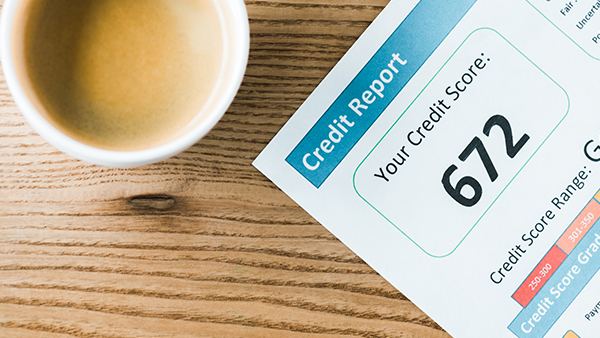You understand the importance of your clients’ credit report, but do they? It’s simple. Borrowers with a higher credit score will be seen as a lower risk by lenders, and so are more likely to be offered a wider range of mortgage products along with better interest rates.
Of course, some of your customers will be more financially savvy, using Credit Reference Agencies (CRAs) like Experian, Equifax, and TransUnion to keep track of their credit score. However, a study in 2022 showed that 46% of UK consumers never think about their credit score and 20% don’t know how to improve it [1].
So what can borrowers do to improve their credit score to give themselves a better chance of being accepted for a mortgage?
We’ve put together some top tips you can share to improved your customers’ credit score.

Top tips to share with your clients
Check and check again
Check your credit report carefully. Mistakes can be costly. Even a minor error in your address can impact your credit score. Details of any lending in your name should also be checked for errors. By law all CRAs have to provide you with a copy of your credit report for free, so it costs nothing to check, just a few minutes of your time.
MSE Credit Club gives free access to Experian, Clearscore gives free access to Equifax and Credit Karma lets you access their TransUnion credit report for free too.
Make sure you’re on the electoral role
This is a priority and an easy way to improve a credit score! If you register to vote as soon as possible after moving house, your local council will send this information to CRAs. In this instance, your credit score can be improved within eight weeks as councils update CRAs once a month.
Pay bills on time
Timely payment of bills, including credit card balances, loans, and utility bills, is one of the most crucial factors in determining your credit score. Late payments can have a significant negative impact.
Managing finances efficiently and paying bills on time proves to lenders that as a potential borrower, you are reliable and prove less of a risk.
Make the break
Breaking financial links with someone who has a poor credit rating may be a difficult scenario to deal with, particularly if it comes to breaking free of a loved one. However, doing so can boost your credit score within four weeks. Anyone linked to you financially will show on your credit record.
Limit new credit applications
Applying for new credit frequently can indicate financial instability. Each application results in a hard inquiry on the credit report, which can temporarily lower your score. Be selective about new credit applications.
Don’t max out
Aim to use only a small portion of your available credit. Using credit to its full extent can indicate financial stress to a lender and the credit score will be negatively impacted. The recommended level of credit utilisation is 30%, whether that’s one credit card or across three [2].
Play the field
Using a range of credit accounts with different types of borrowing, like secured lending or unsecured lending in the form of credit cards or personal loans, will demonstrate to a lender that you can manage your finances responsibly.
If you use no form of credit, maybe because your income dictates you don’t need it, you will have a low credit score as there’s nothing to prove to a lender how financially responsible you are. So, even the wealthy benefit from taking on some credit, whether that be a loan, credit card, or even a mobile phone contract.
Keep account
The length of your credit history matters. Closing old credit accounts can shorten your credit history, potentially affecting your credit score. Keep your oldest accounts open and active.
Go direct
Using direct debits to make regular payments can improve your credit score although you must ensure that there is enough money in the account each month to cover payments, otherwise you will see a negative impact.
All accounts count
It’s important to keep up payments on things like store cards, subscription packages, and mobile phone contracts.
Be patient
It will take time to improve your credit score. Negative information, like missed payments, typically remains on your credit report for several years. Consistently practicing good credit habits will gradually improve your credit score.
Unfortunately, there’s no quick fix to improved your customers’ credit score. It takes time, and consistent effort and responsible financial management from them to see significant improvements. But encouraging customers to prioritise responsible financial behaviour will help maintain a healthy credit score in the long run and leave them better placed to get the mortgage deal they desire.


